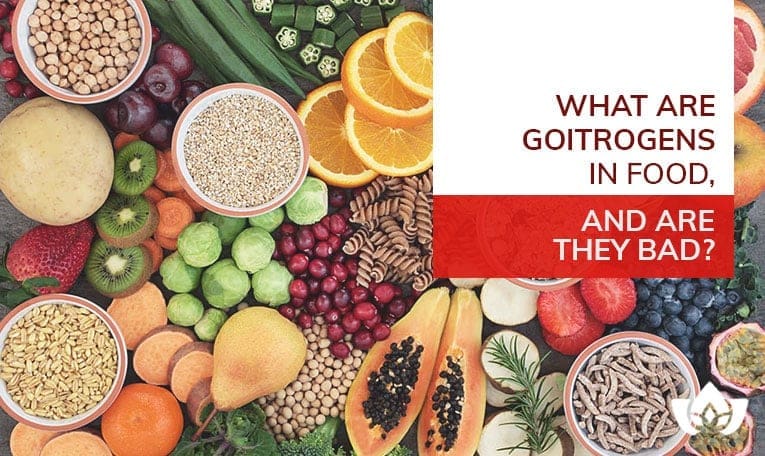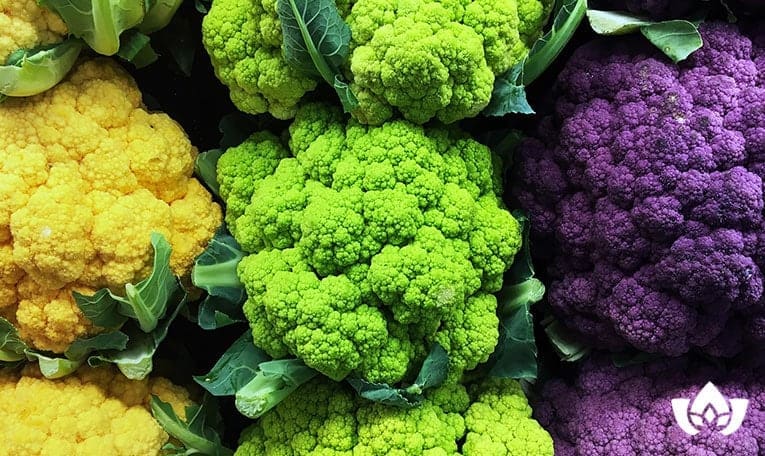
Knowing what you should – and shouldn’t – eat these days is a daunting task.
Everywhere you turn there is an “expert” shilling their latest diet, eating plan, or list of top ten foods to avoid.
So what should you follow?
The short answer is, there is no “one size fits all” diet or eating plan which will work for everyone.
The right diet for you depends on your health history, and what your goals are.
If things seem confusing, you may want to consider seeing a Mississauga naturopathic doctor who offers nutritional counselling.
Today we will look at goitrogens in food, what they are, and why you should be aware of them.
Keep reading to learn more.
What Are Goitrogens?
Goitrogens are compounds which are found in many leafy green vegetables, soy-based foods, and starchy fruits.
These compounds can interfere with the functioning of the thyroid gland, and limit your body’s ability to make thyroid hormones.
When the thyroid is having difficulty making hormones, it works harder and becomes enlarged.
Enlargement of the thyroid gland is also called a “goiter”, which is where the term goitrogen comes from.
How Do Goitrogens Cause Problems?
There are a couple different ways goitrogens can cause issues for people with thyroid issues.
Keep reading as we take a look at what they are.
1. Iodine Blockers
A 2012 study in the journal Cancer Causes & Control found that compounds in cruciferous vegetables inhibit iodine transport.
Iodine is an important factor in the production of thyroid hormones, so when iodine is blocked, it can result in a decrease in the production of thyroid hormones.
2. Interfering with Thyroid Hormones
Goitrogens can interfere with the ability of the thyroid to produce thyroid hormones.
One way they do this is by interfering with thyroid peroxidase (TPO), an enzyme which attaches iodine to tyrosine (an amino acid) which forms the basis of thyroid hormones.
Goitrogens can also interfere with thyroid-stimulating hormone (TSH), which plays an important role in the production of thyroid hormones.
What does this mean in English?
If your thyroid is under-producing hormones, it can lead to hypothyroidism.
That’s a difficult disorder which can cause a wide variety of symptoms, including:
- Weight gain
- Chronic fatigue
- Constipation
- Dry, thinning skin or hair
- Decreased heart rate
- Hoarse throat
- Increased sensitivity to cold
- Aches, tenderness, and stiffness in the muscles or joints
- Heavier menstruation
- Depression
- Brain fog
- Difficulty remembering
- Goiter
- Higher cholesterol levels

Foods High In Goitrogens
Foods which are known to be goitrogenic include:
Soy-based foods:
- Tofu
- Tempeh
- Soy milk
- Edamame
Starchy plants and fruits:
- Sweet potatoes
- Pine nuts
- Strawberries
- Corn
- Pears
- Peanuts
- Lima beans
- Peaches
- Pears
Cruciferous Vegetables:
- Spinach
- Kale
- Bok choy
- Broccoli
- Brussels sprouts
- Cauliflower
- Cabbage
- Horseradish
- Turnips
But I Thought Those Were Healthy Foods!
So you’ve just read through the above list of foods containing goitrogens, and you’re thinking “aren’t these supposed to be good for me?”
The answer is, “It’s complicated”.
Most of the foods listed above, especially the ones falling under the “cruciferous vegetables” category, are full of nutrients, and are generally healthy, despite their goitrogenic effects.
Others such as soy and peanuts are more complicated, and in some cases should be avoided.
Should You Be Concerned About Goitrogens?
The vast majority of the population doesn’t need to be overly concerned about goitrogens in food.
Most of the foods which contain goitrogens are also extremely nutritious and you would have to eat them in very large amounts to cause any thyroid function problems.
Unless you have another reason to avoid them, such as a food sensitivity or allergy, they can be part of a healthy diet where their benefits outweigh their risks.
It’s important to recognize, too, that each food listed as a goitrogen acts in different ways on the thyroid.
For most people with hypothyroidism, the cause is not related to an iodine deficiency.
As a result, eating foods which block iodine uptake such as sweet potato or cruciferous vegetables is still generally safe.
If you’re still worried about cruciferous vegetables, though, cooking or steaming them can deactivate the iodine-blocking elements.
However, goitrogens which can impair the production of thyroid hormones such as soy should be avoided by those with hypothyroidism.
Book An Appointment With The Mindful Healing Clinic
Are you worried about your thyroid hormone levels?
Or perhaps you’ve been diagnosed with hypothyroidism and are looking for natural solutions to help manage your symptoms.
Maybe you are confused about what you should and shouldn’t be eating and are looking for some nutritional guidance to help sort things out.
No matter the issue, the Mindful Healing clinic can help.
Contact me, Dr. Maria, today.
I’ll work with you to develop a plan based on your individual health needs and situation, and take the guesswork out of what foods you should be eating more of, and what you should avoid.
Until next time,
Dr. Maria Cavallazzi, N.D
Mindful Healing Naturopathic Clinic
Mississauga, ON L5M 1L7
(905) 819-8200
► https://g.page/MindfulClinicNaturopathic
Dr. Maria Cavallazzi is a medical doctor from Colombia where she practiced as a family physician for 8 years until she moved to Canada 16 years ago and became a naturopathic doctor in Mississauga.


